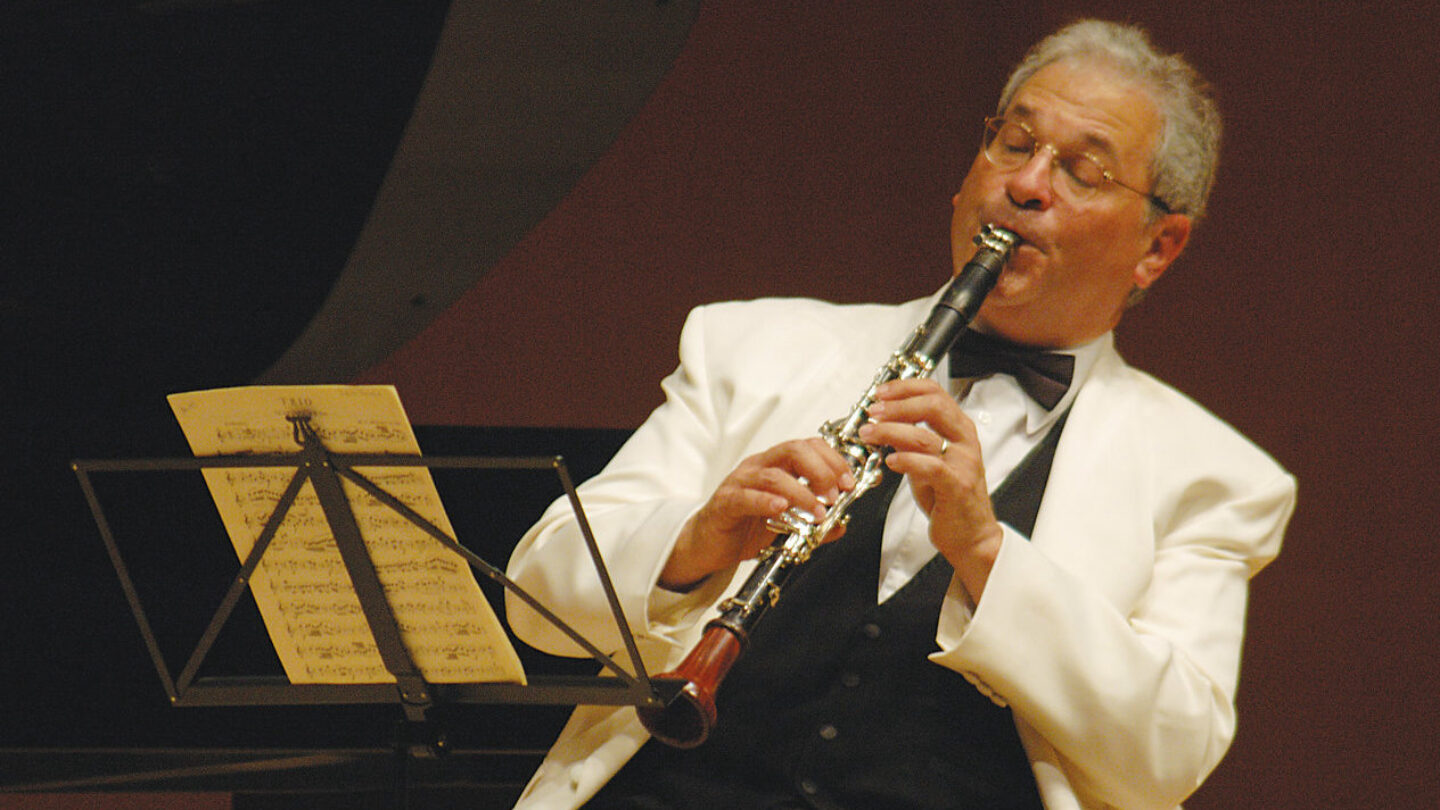When pianist Will Ransom wanted to form a chamber music society in Atlanta, he approached David Shifrin for advice, with good reason — in the chamber music firmament, clarinetist David Shifrin is among the brightest stars. He has performed with the Chamber Music Society of Lincoln Center since 1982, served as artistic director of that storied organization for a dozen years, and currently is the artistic director of Yale’s Oneppo Chamber Music series, as well as the “Yale in New York” concert series. Mr. Schiffrin also maintains an active career as a concert soloist and teaches at the Yale School of Music. He’ll perform with the Emory Chamber Music Society of Atlanta, Jan. 20-21. Ahead of those concerts, he joined “City Lights” host Lois Reitzes via Zoom to share some of the history and appeal of chamber music.
Interview highlights:
How chamber music reflects friendships from centuries past:
“The clarinetist that Mozart wrote for Anton Stadler, or the clarinetist that Brahms wrote for, Ricard Mühlfeld, had really diverse careers. Stadler played in the Vienna Opera and played symphonically. Mozart included clarinet parts in his opera orchestra because of his friend Stadler… Stadler played the concerto of Mozart, which is a crown jewel in his concerto repertoire, and Brahms heard Mühlfeld playing Mozart’s concerto and was inspired to write his chamber works, which brings me around to the personal nature of the extensive repertory for chamber ensembles, where composers wrote some of their most compelling personal masterpieces for musicians that they were very closely aligned with, writing for musicians that they knew as well as for themselves to play.”
“I think Brahms is one of the greatest examples because in almost all of his piano chamber music, he was the pianist. He played with Mühlfeld, he played with [Robert] Hausmann, the cellist, he played with Joseph Joachim, the violinist; and when you hear his sonatas and his trios and his quintets, you can just imagine him sitting there with his cigar and playing these in incredible works with musicians that he had known for years and years, and were kind of extensions of his own creative self. So being a chamber musician and being involved in works that were conceived in that kind of a way is very stimulating, as well as having the chance to take on all of the roles within one endeavor.”








